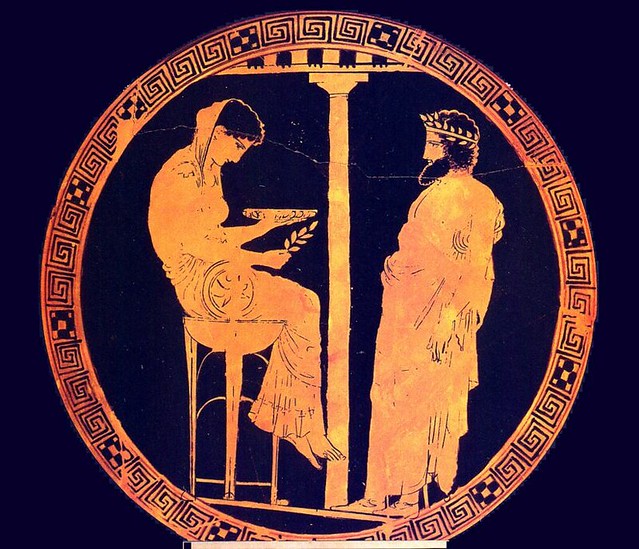
Mural of Fernando Pessoa in Portugal
“Weavers of despair, let us weave only shrouds – white shrouds for the dreams we never dreamed, black shrouds for the days when we die, grey shrouds for the gestures we only dreamed of, imperial purple shrouds for our futile feelings.”
Fernando Pessoa, “The Book of Disquietude”, the complete edition translated from the Portuguese by Margaret Jull Costa, Kindle edition
Fernando Pessoa, was a magnificent Portuguese writer, who spent all of his life in relative obscurity leading quite a lonely life. As was the case with other famous artists, for example Kafka or Van Gogh, the public discovered Pessoa posthumously. While alive he published a single book of poetry and was working on a book of prose, which was never finished or published. The Book of Disquietude has been described as a fictional diary or a modern confession. “The book is a single state of soul,” he writes, “analyzed from every angle, traversed in every possible direction.” He wrote an autobiography without events; or rather a diary in which the only events are the inner workings of his being. He saw confessing, confiding, baring a soul as the basest human need. Yet, being misunderstood is just as basic, since “the words of others are errors in our hearing, shipwrecks in our understanding.” It seems that all his life he sought self-understanding mainly through writing but also pursuing other surprising avenues, for example by corresponding with Aleister Crowley or by pursuing avidly the subject of astrology. There are gems hidden on almost every page of The Book of Disquietude, which I am currently rereading.
I leave you with Pessoa’s poem “Advice,” which is reminiscent of Theresa Avila’s comparison of soul’s work to watering a garden:
“Surround who you dream you are with high walls.
Then, wherever the garden can be seen
Through the iron bars of the gate,
Plant only the most cheerful flowers,
So that you’ll be known as a cheerful sort.
Where it can’t be seen, don’t plant anything.
Lay flower beds, like other people have,
So that passing gazes can look in
At your garden as you’re going to show it.
But where you’re all your own and no one
Ever sees you, let wild flowers spring up
Spontaneously, and let the grass grow naturally.
Make yourself into a well-guarded Double self,
letting no one who looks in
See more than a garden of who you are—
A showy but private garden, behind which
The native flowers brush against grass
So straggly that not even you see it . . .”
Translated by Richard Zenith, taken from “A Little Larger than the Entire Universe” – Selected Poems by Fernando Pessoa, Kindle edition
Although as a poet he frequently used other names than his own (he called those alternative personalities heteronyms), this particular poem was signed with his name. In his affinity for adopting different artistic identities, however, the inner sanctum of his private soul garden remained untouched by this masquerade.

Arnold Böcklin, “Pan in the Reeds”
Links:
https://www.newyorker.com/magazine/2017/09/04/fernando-pessoas-disappearing-act
https://www.theguardian.com/books/2008/jul/20/news.poetry












very nice.
LikeLiked by 1 person
Thank you.
LikeLike
Thank-you Monika! He sounds a very interesting person. I think the astrology of someone so self-reflective would be interesting.
Wishing you a merry Christmas and hope that 2018 will bring you at least some of what you seek.
LikeLiked by 1 person
Warmest season wishes to you as well!
Pessoa had deep knowledge of astrology. His chart is quite interesting https://www.astro.com/imwiki/adb/nat/I025/I025478.BxdSmBjydkbDS.2ewmPozQ.c2atw.250.jpg
LikeLike
Thanks for the chart link Monika. Lots of Gemini and yes I suspected intuitive/ hermit 12th house inspiration here.
LikeLiked by 1 person
P.S. I forgot to say I just love that painting of Pan! You can feel the relaxed lounging of his body totally comfortable in his environment whilst appreciating that his senses are fully aware of the broad surrounds. It’s lush and pristine.
LikeLiked by 2 people
Böcklin is one of my beloved painters. I’ve seen quite a lot of his works in museums and they have always captured me more than any others.
LikeLike
Thank you for the introduction to this hidden gem. It is interesting how the poem suggests a particular psychological “mask:, akin to the protection one’s ascendant gives to one’s true nature.
LikeLiked by 1 person
Yes, I agree – this could be a very good metaphor for the Ascendant. Though not all of them can be cheerful 😉
LikeLiked by 1 person
Very interesting post
LikeLiked by 1 person
Thank you.
LikeLike
I love this! Thank you for sharing 🙂
Picturing the lush 12th house and the sacred secret garden. I enjoy how this is advice because I find it curious and inspiring, and not like typical contemporary advice – on how to remain pure and fertile, perhaps, and even Unknown to oneself!
LikeLiked by 1 person
Yes, exactly! It also made me think of the Jungian Self – how we should have a living relationship with that unknown divine part of ourselves. You phrased it really well.
LikeLiked by 1 person
beautiful pictures! Expecially the mural about Pessoa..
LikeLiked by 1 person
I love that mural as well.
LikeLike
thank you
LikeLiked by 1 person
Thanks for reminding me of this wonderful writer! Now I will find his poetry book and read it~~
LikeLiked by 1 person
Thank you!
LikeLike